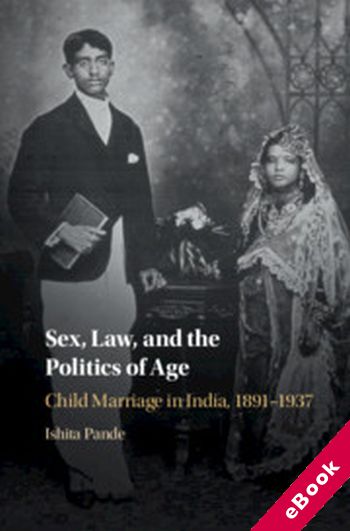
The device(s) you use to access the eBook content must be authorized with an Adobe ID before you download the product otherwise it will fail to register correctly.
For further information see https://www.wildy.com/ebook-formats
Once the order is confirmed an automated e-mail will be sent to you to allow you to download the eBook.
All eBooks are supplied firm sale and cannot be returned. If you believe there is a fault with your eBook then contact us on ebooks@wildy.com and we will help in resolving the issue. This does not affect your statutory rights.
Ishita Pande's innovative study provides a dual biography of India's path-breaking Child Marriage Restraint Act (1929) and of 'age' itself as a key category of identity for upholding the rule of law, and for governing intimate life in late colonial India. Through a reading of legislative assembly debates, legal cases, government reports, propaganda literature, Hindi novels and sexological tracts, Pande tells a wide-ranging story about the importance of debates over child protection to India's coming of age. By tracing the history of age in colonial India she illuminates the role of law in sculpting modern subjects, demonstrating how seemingly natural age-based exclusions and understandings of legal minority became the alibi for other political exclusions and the minoritization of entire communities in colonial India. In doing so, Pande highlights how childhood as a political category was fundamental not just to ideas of sexual norms and domestic life, but also to the conceptualisation of citizenship and India as a nation in this formative period.